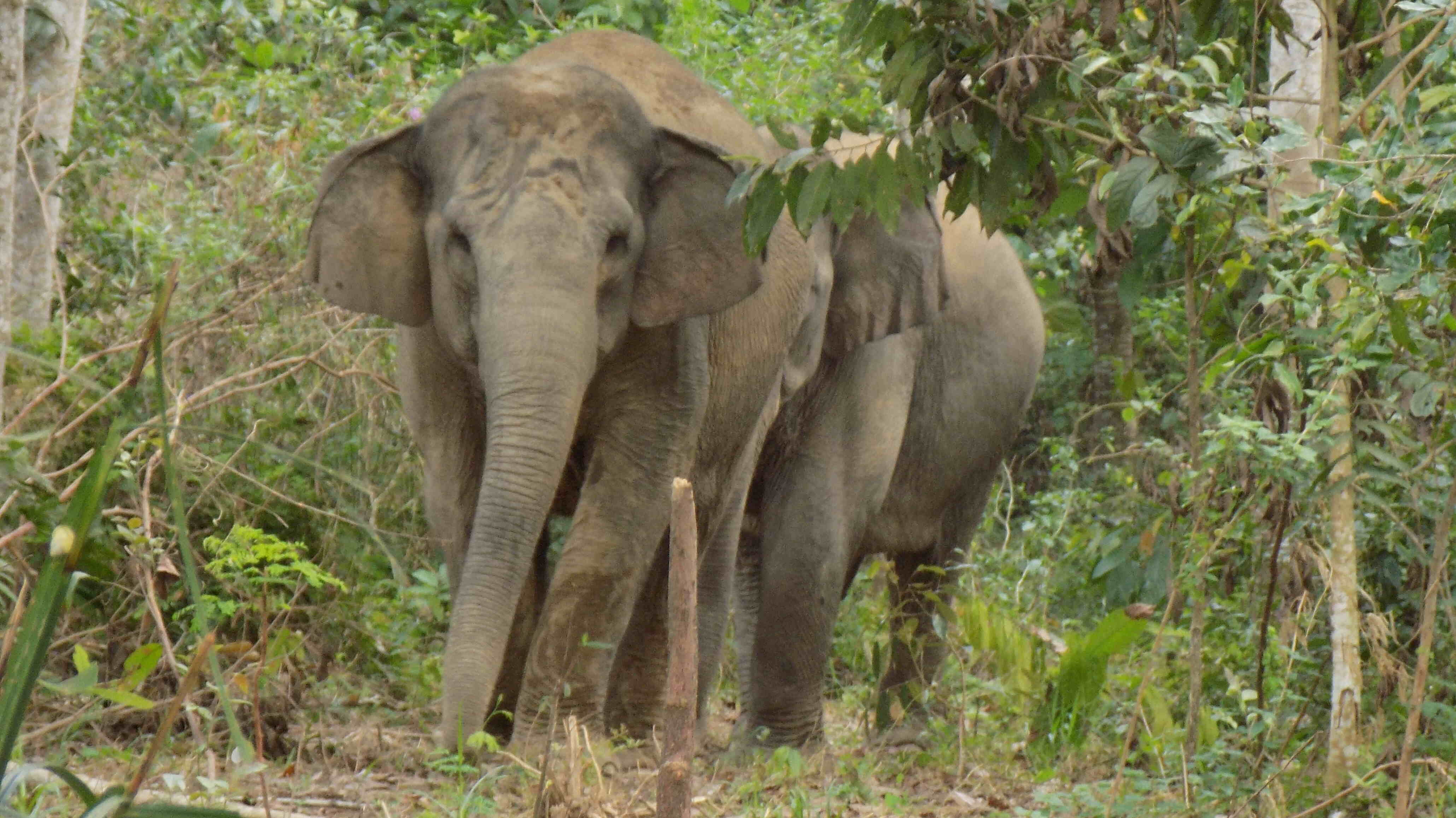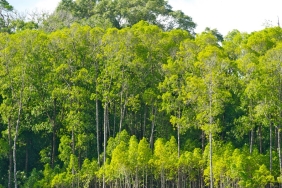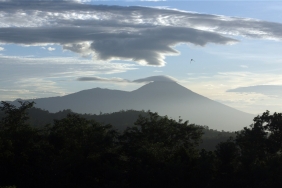WAY KAMBAS PATROL ELEPHANTS HELP HERD WILD ELEPHANTS "HOME"
By: Hijrah Nasir (Communication and Education Officer, BBS Lampung - Bengkulu Project) & Natalia Trita Agnika
There are many challenges to Sumatran elephant conservation. One of them is the narrowing of their habitat. Elephants, which have a strong memory of their home range, often enter people's gardens or settlements. Sometimes they enter people's gardens because they want to find food. When this happens, conflict between humans and elephants is difficult to avoid. Such a condition recently occurred in Semaka Subdistrict, Tanggamus Regency, Lampung.
One example is the community's cultivated plantation located within the Kota Agung Utara Protected Forest, which used to be an elephant's home range. It is not surprising that when the availability of food and water decreases, wild elephants will enter people's gardens. Moreover, people plant banana, corn, rice, papaya, and cocoa plants, which are the favorite food of elephants.
The area around Bukit Barisan Selatan National Park (TNBBS) has been experiencing a long conflict since June 2017 related to the entry of elephants into community gardens. Despite eight attempts to drive the elephants back to their habitat by the WWF team and partners, the group of 12 elephants did not move from the community garden. The herd of elephants were female elephants of child, adolescent and adult ages.
Responding to the prolonged conflict, various related parties including the Tanggamus Regional Government together with the Lampung Provincial Forestry Service, Bengkulu BKSDA, TNBBS Center, TNWK Center, Tanggamus Regency Communication and Information Office, Kodim 0424 Tanggamus, Tanggamus Police, KPHL Kota Agung Utara, and NGO partners WWF-Indonesia, WCS, YABI, and UNILA PILI agreed to immediately return the elephants to their habitat, namely to the TNBBS.
In order to move the wild elephants to their natural habitat, a group of trained elephants from Way Kambas National Park (TNWK) was brought in. Before the trained elephants from TNWK were brought in, WWF and the villagers of Talang Way Asahan had conducted wild elephant herding to keep them away from settlements and identified the paths of wild elephants into TNBBS. They also identified the food and water sources of the training elephants that would later lead the wild elephants back to their "home".
On (18/11), four trained elephants consisting of four males and one female arrived in Tanggamus Regency and were welcomed by the community. The joint team that was formed began the task of herding wild elephants according to the initial information about the location of wild elephants that had been received. During the roundup, there was physical contact between the wild elephants and the training elephants. However, the wild elephants were pushed back to the TNBBS area. The joint team and the training elephant rested at a local hut, about 700 meters from the boundary. The method of driving the wild elephants using the training elephants was more effective than the previous method, which was done manually. With the help of training elephants, wild elephants tend to keep moving "home" when they see training elephants approaching.
The challenge faced in herding wild elephants back into the area is the hilly terrain of TNBBS. The training elephants that assisted the herding had some difficulty because they were used to flat terrain like in WKNP. Bad weather conditions are also an obstacle. In addition, some wild elephants were detected returning from inside the area.
At the end of November 2017, an evaluation of the trial use of patrol elephants from WKNP was conducted with positive results, where during the period November 18 to December 4, 2017, the herd of 12 wild elephants never came to residential areas in the four affected villages. The Regent of Tanggamus said that for almost two weeks the community was able to sleep peacefully without any disturbance from wild elephants. On (5/12), the elephant conflict management operation using patrol elephants ended, along with the expiration of the task order (SPT) of the WKNP center officers.
The handling of wild elephants in Tanggamus is not over yet. The herding team and mahout suggested that there should be a support team on standby in each village to prevent wild elephants from approaching the village. The assistance of patrol elephants in herding wild elephants "home" is considered quite effective, but the hilly terrain is quite difficult.
No less important than all these herding efforts is the need for enrichment of food plants in protected forest areas and national parks so that wild elephants do not return to the village. Efforts and support from all parties are needed for the preservation of elephants.





